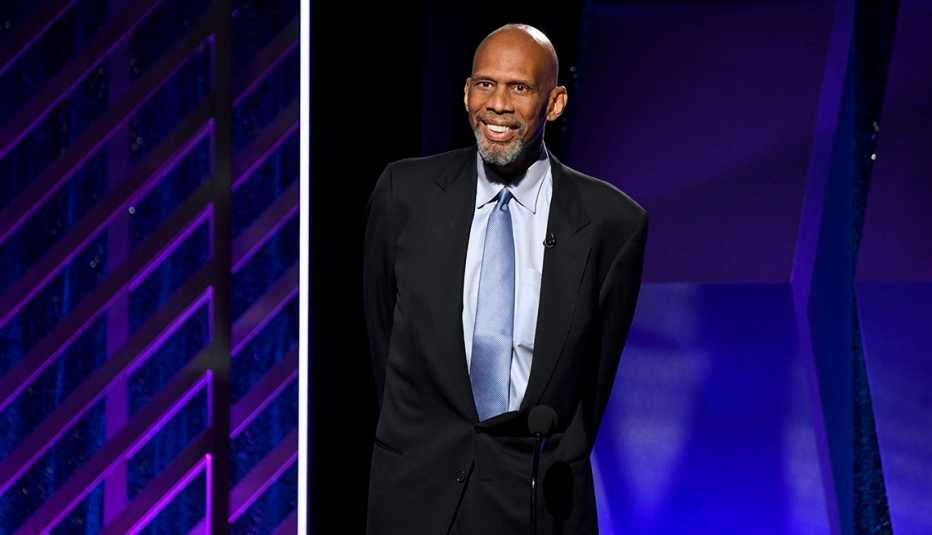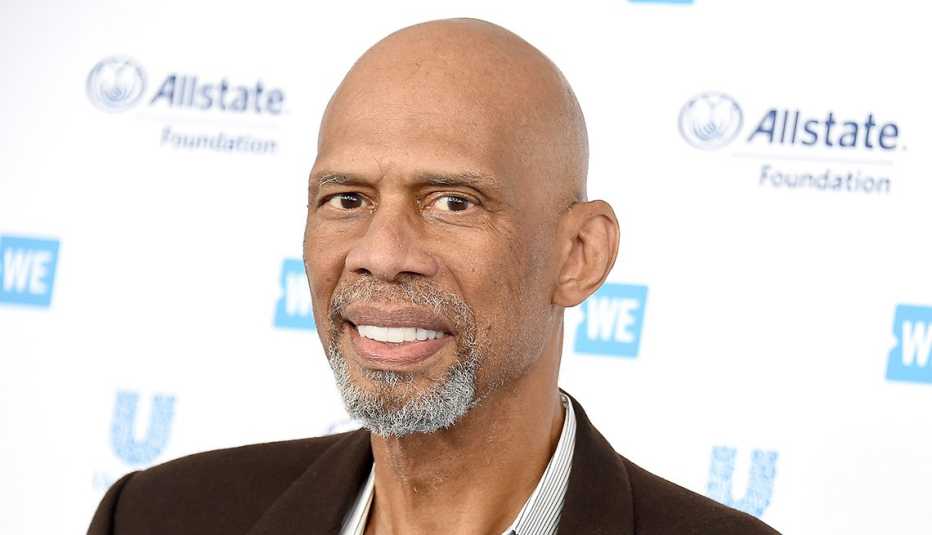Staying Fit


"The first person to die in the Revolutionary War was a black American,” says the 7-foot-2 former NBA superstar and best-selling author Kareem Abdul-Jabbar.
The history buff is executive producer and host of the 42-minute documentary Black Patriots: Heroes of the Revolution (History Channel, streaming on demand free at play.history.com). It features the unsung African Americans who fought — and died — for both sides in the Revolutionary War.


AARP Membership— $12 for your first year when you sign up for Automatic Renewal
Get instant access to members-only products and hundreds of discounts, a free second membership, and a subscription to AARP the Magazine.
"American history is usually painted by Americans of European descent, ignoring or marginalizing the contributions of black Americans,” Abdul-Jabbar, 72, tells AARP. “What I learned changed my life and my sense of heritage."
America's first fallen hero was Crispus Attucks, 47, a runaway slave who worked as a Boston whaler. On March 5, 1770, he joined a group of protesters throwing debris at British soldiers who opened fire in what became known as the Boston Massacre.
Attucks took two ricocheted bullets in the chest. In total, five protesters died.


About Kareem Abdul-Jabbar
Born: April 16, 1947, in New York City as Ferdinand Lewis Alcindor Jr.
Education: Bachelor’s degree in history, University of California, Los Angeles, 1969
NBA:
• Milwaukee Bucks, 1969-75
• Los Angeles Lakers, 1975-89
• Career, NBA top scorer, six-time champion, only six-time most valuable player
Writer:
• Author of 14 books
• Articles in the Hollywood Reporter, the Guardian
• Four-time National Arts & Journalism Columnist of the Year
Television and movies:
• Writer, Veronica Mars, 2019
• Star, Kareem: Minority of One, HBO’s most-watched sports documentary, 2015
• Copilot Roger Murdock, Airplane!, 1980
• Hakim, Bruce Lee’s The Game of Death, 1974
Also: In 1971, he changed his name to Kareem Abdul-Jabbar, which means “noble servant of the powerful one,” after converting to Islam
"The whole idea was to make sure they were not ignored,” Abdul-Jabbar says of his Black Patriots project. “I'm happy that Attucks’ story gave me the opportunity."
Like Attucks, black patriots were mostly slaves looking to secure their freedom by joining the fight. Often, they enlisted in army service as a substitute for their masters and were promised liberty.
They were not unflawed. Indeed, they were mercenary in their attempts to escape slavery, and Abdul-Jabbar's documentary portrays them with unvarnished clarity.
"They weren't perfect people,” he says. “They saw an opportunity for freedom, and they took it. Freedom was the key issue here. The colonists were fighting for their freedom at the same time African Americans were fighting for theirs."
For a time, Gen. George Washington, a slaveowner himself, forbade unemancipated African Americans to fight for the colonists.
The enemy seized the opportunity.
In November 1775, John Murray, fourth Earl of Dunmore and the royal governor of Virginia, offered freedom for all slaves who would join his army, recruiting them with the slogan “Liberty to Slaves.” Thousands of blacks joined, filling Dunmore's Ethiopian Regiment.
One of them, 21-year-old escaped slave Titus Cornelius, is a vivid character in Black Patriots. Nicknamed “Colonel Tye,” he became a fearsome guerrilla leader, carrying out bloody nighttime raids attacking wealthy New Jersey patriots and former masters — and freeing slaves. The black soldiers were the colonists’ worst nightmare: They knew every inch of the terrain.

































































More From AARP
17 Essential Films About the Black Experience
From ‘A Raisin in the Sun’ to ‘Get Out,’ these movies span the vast culture of Black life in America'They've Gotta Have Us': A Brilliant History of Black Cinema
Documentary casts fascinating light on a 'renaissance of black film'Henry Louis Gates Jr. on Ancestry's Impact for Us All
'Finding Your Roots' host says there's 'never been a better time' to check out your family tree